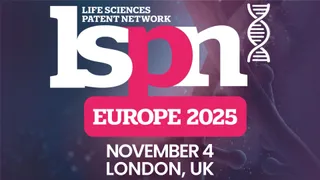
Budgets, CRISPR, and keeping pace with tech: top challenges for Europe’s patent pros
A new survey from LSIPR reveals that European patent practitioners are grappling with client budget constraints and fast-evolving technologies, with most expecting patenting challenges to increase over the next five years.
Budget constraints and keeping up with advancing technology are the top challenges facing European life sciences patent practitioners, according to a new survey released by LSIPR.
The LSPN Europe 2025 Report found that one-third of respondents identified both client budget constraints and keeping pace with rapidly evolving technology as their biggest challenges.
Rising patent prosecution costs and tougher regulatory requirements were also key issues, each affecting 27% of professionals surveyed.
The study—conducted among IP specialists in pharma, biotech, medical devices, diagnostics, and other life sciences fields—shows how the profession is handling change.
From the rollout of the Unitary Patent system and the Brexit fallout to the rise of artificial intelligence (AI), Europe is becoming more complicated for life sciences.
The findings will help shape discussions at LSPN Europe 2025, taking place in London on November 4.
The conference will feature experts from the Unified Patent Court (UPC), McDermott Will & Emery, HGF, Mewburn Ellis, and Kilburn & Strode, and in-house counsel from companies including Regeneron, CureVac, and Bicycle Therapeutics.
Life sciences touched only slightly by AI
Despite the industry buzz around AI in life sciences, its impact on patent practice has been modest, the survey shows.
Almost half of respondents (43%) said AI has had only a slight effect on their work over the past two years, while nearly a quarter (23%) reported no impact at all.
Just 7% described its influence as “very significant”.
Meanwhile, 17% flagged the complexity of AI and software-related inventions as a major challenge—suggesting that professionals are still adapting to these emerging technologies.
UPC shows limited impact
The European Unitary Patent system, launched in June 2023, has so far received a mixed response from practitioners.
Just over a third (37%) found it “moderately helpful” for certain client cases, while 20% said it added complexity.
Another 20% felt that it’s too early to judge its impact. Only 10% reported that the system had significantly streamlined their European filing strategy, and 13% had not yet used it.
The UPC has also had a limited effect so far on patent strategies.
Nearly half of respondents (43%) saw no major change in their practice, though 33% have developed new expertise to handle UPC procedures, and 20% are now coordinating UPC cases with EPO oppositions more frequently.
CRISPR and digital health drive challenges
When asked which emerging life sciences technologies present the greatest patent challenges, CRISPR and gene editing technologies topped the list.
Digital therapeutics and software-based medical devices, along with biosimilar patent strategies and enforcement, were also seen as significant challenging areas.
Looking ahead, practitioners expect to see the most patent activity in personalised medicine and precision diagnostics, followed by AI-driven drug discovery, gene and cell therapy, and wearable diagnostics and biosensors over the next three years.
More than half of respondents (53%) expect the patent landscape in Europe to become more challenging over the next five years due to regulatory and technical complexity.
Only 23% believe conditions will remain relatively stable with current trends continuing, while 17% are uncertain about the future due to too many variables to predict.
A further 10% predict that the landscape will become significantly more difficult due to policy changes, with just 7% expecting an increasingly favourable environment.
For questions about the survey or conference contact:
Hannah Gore
Senior conference producer
Email: hgore@newtonmedia.co.uk
For LSPN Europe sponsorship contact:
Ali Ahmad
Commercial partnerships head
Email: aahmad@newtonmedia.co.uk
Did you enjoy reading this story? Sign up to our free daily newsletters and get stories sent like this straight to your inbox

